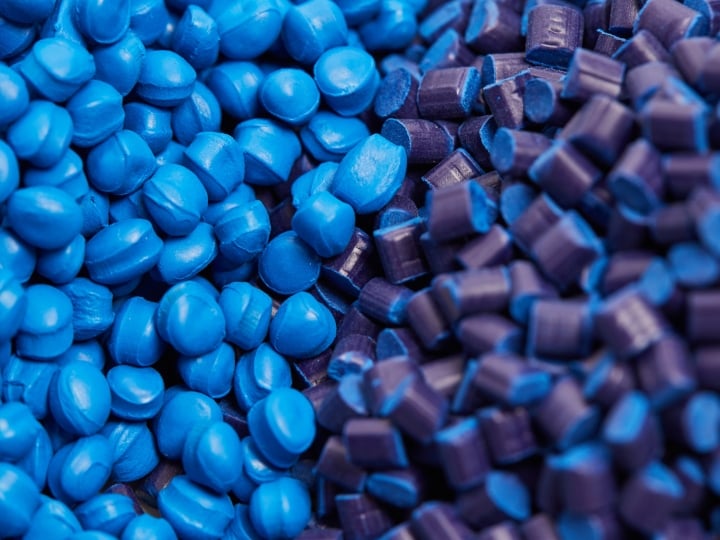Density and Specific Gravity ASTM D792, ISO 1183
Density is the mass per unit volume of a material. Specific gravity is a measure of the ratio of mass of a given volume of material at 23°C to the same volume of deionized water. Specific gravity and density are especially relevant because plastic is sold on a cost per pound basis and a lower density or specific gravity means more material per pound or varied part weight.
Test Procedure:
There are two basic test procedures- Method A and Method B. The more common being Method A, can be used with sheet, rod, tube and molded articles. For Method A, the specimen is weighed in air then weighed when immersed in distilled water at 23°C using a sinker and wire to hold the specimen completely submerged as required. Density and Specific Gravity are calculated.
Specimen size:
Any convenient size.
Data:
Specific gravity = a/[(a + w)-b]
a = mass of specimen in air.
b = mass of specimen and sinker (if used) in water.
W = mass of totally immersed sinker if used and partially immersed wire.
Density, kg/m3 = (specific gravity) x (997.6)
**Please note that this test description is intentionally generic in nature and aimed at providing a descriptive summary to enhance test understanding. Due to copyright restrictions, we are not able to provide copies of standards. Standards can be obtained from appropriate standards authorities.

